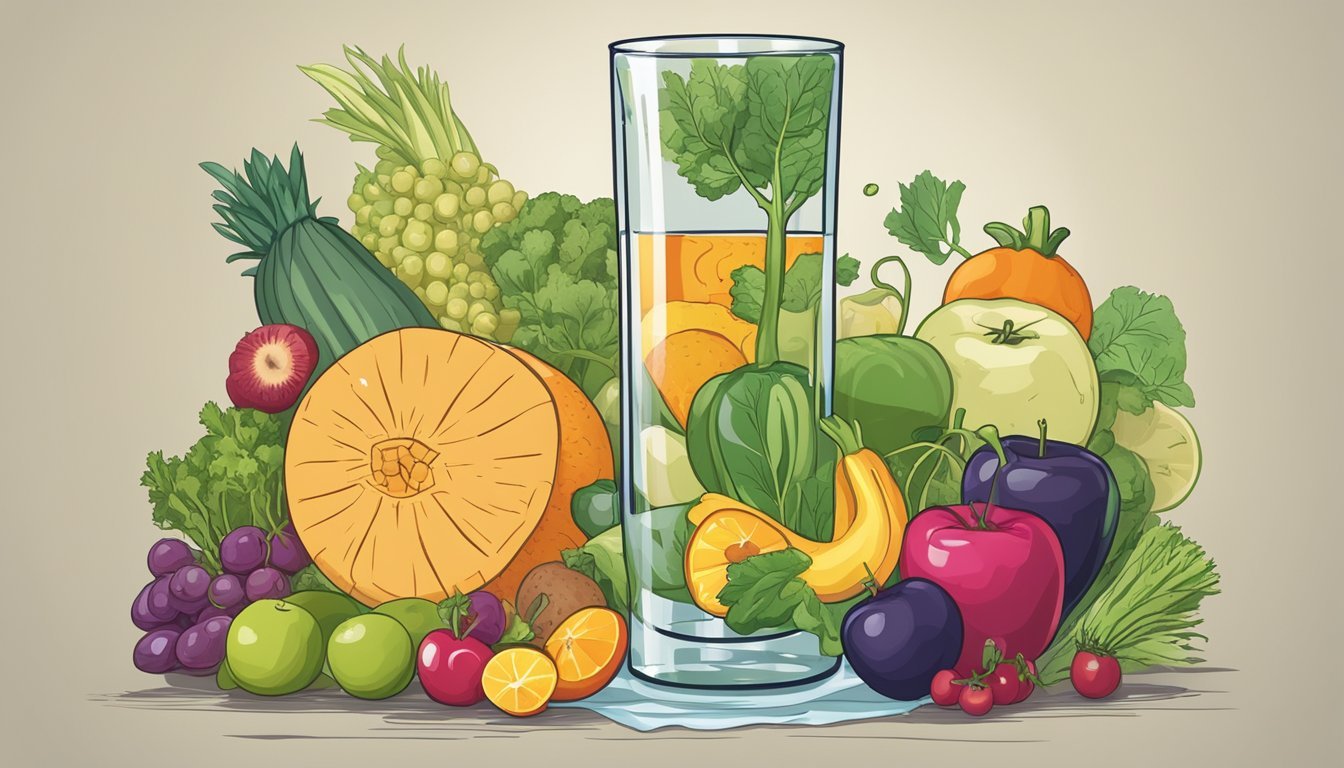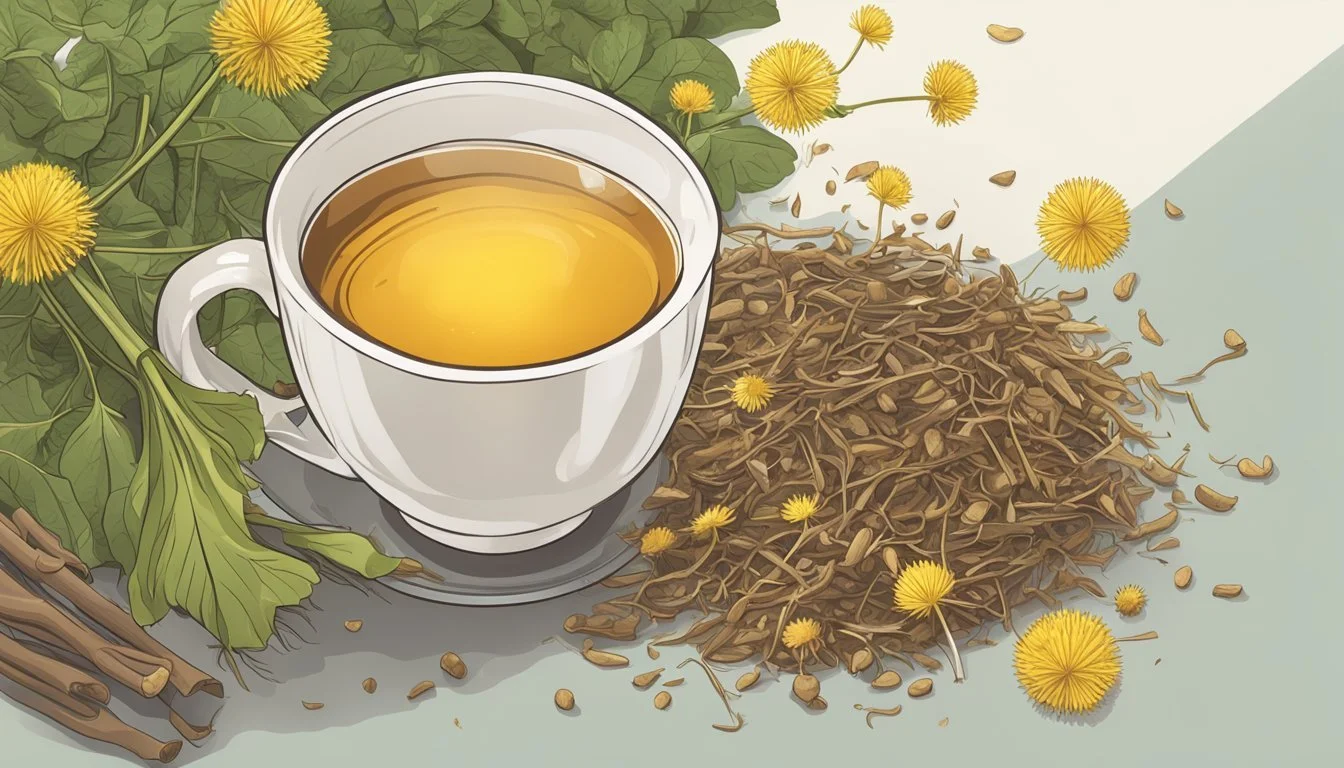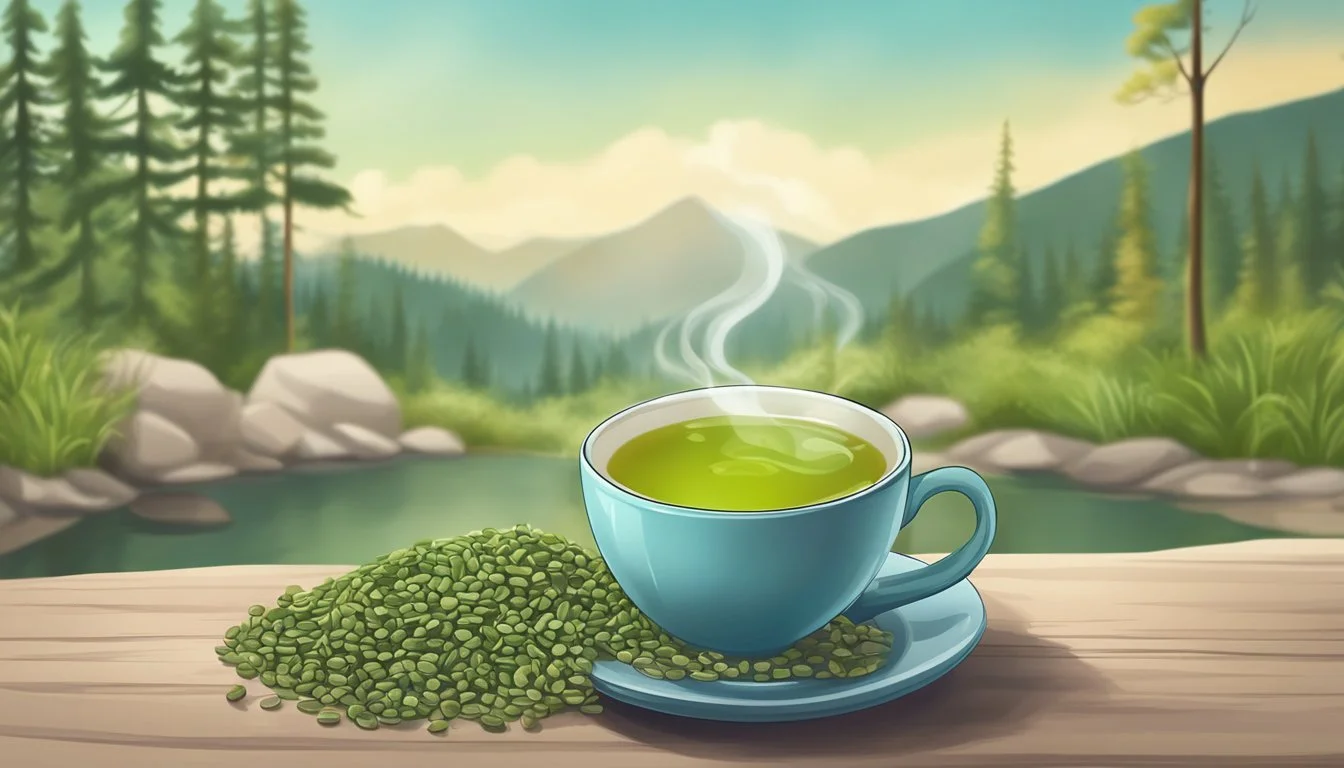Kidney-Friendly Foods to Prevent and Manage Kidney Stones
Diet plays a crucial role in the prevention and management of kidney stones, a common health issue affecting many individuals. Various foods can either contribute to the formation of kidney stones or help prevent them. Understanding which foods to include or avoid can significantly impact those at risk of developing kidney stones.
A well-balanced diet tailored for kidney stone prevention can limit the recurrence and support overall kidney health. By incorporating the right nutrients and making informed dietary choices, individuals can manage their risk and maintain a healthier lifestyle.
1) Cranberry Juice
Cranberry juice is often recommended for its potential health benefits, particularly for urinary tract health. It is believed to help prevent kidney stones and urinary infections.
Cranberry juice may help prevent the formation of kidney stones by creating an environment that is less hospitable to stone formation. It can increase urine acidity, which may dissolve certain types of kidney stones.
Despite these potential benefits, cranberry juice's effectiveness in treating kidney stones is debated. Some studies suggest it can be helpful, while others indicate it may not be beneficial and could even be harmful.
Experts recommend consuming 100% natural, unsweetened cranberry juice. Drinking one to two cups a day is a common suggestion. It's important to consult with a healthcare provider before making significant dietary changes.
Cranberry supplements are an alternative to juice. They are preferred by some for their convenience and concentrated form. Ensure supplements are from reputable sources to avoid unwanted additives.
2) Pomegranate Juice
Pomegranate juice offers potential benefits for those dealing with kidney stones due to its high antioxidant content. The juice from the fruit is rich in polyphenols, including tannic acid, which has antibacterial and anti-inflammatory properties. These antioxidants may help to protect the kidneys and potentially reduce the risk of kidney stone formation.
The potassium content in pomegranate juice is moderate, making it suitable for those needing to monitor their potassium intake. Properties inside the juice may also assist in flushing out excess minerals that contribute to kidney stones.
Regular consumption of pomegranate juice can be part of a balanced diet, but individuals with kidney issues should always consult their healthcare provider before making significant changes to their dietary habits. This ensures that the juice fits within their specific nutritional needs and health conditions.
3) Lemon Water
Lemon water offers a natural method to help prevent kidney stones. Citrate, found in lemon juice, binds to calcium and helps block the formation of stones. Drinking lemon water can increase urine citrate levels, which reduces the risk of kidney stones.
Regular consumption is key. A practical approach suggested by studies involves drinking a half cup of lemon juice concentrate diluted in water daily. This amount is roughly equivalent to the juice of two lemons.
Lemon and lime juices are particularly effective against calcium-based kidney stones. They not only neutralize urine acid, but can also help stop calcium from forming stones. This dual action makes lemon water an accessible and proactive choice for kidney stone prevention.
It is important to note that high levels of lemon juice, while beneficial for kidney health, might pose dental health challenges. Balancing lemon water intake while maintaining proper oral hygiene can help mitigate this risk.
4) Basil Juice
Basil juice is often cited as a natural remedy for kidney stones. Basil contains acetic acid, which may help to break down kidney stones and reduce pain. Regular consumption of basil juice is believed to foster kidney health overall.
Apart from acetic acid, basil also provides various antioxidants and anti-inflammatory compounds. These elements support overall kidney function and may assist the body in expelling kidney stones more efficiently.
It is recommended to consume fresh basil juice or make a tea from basil leaves. Boil a few basil leaves in water and let it steep before drinking. Some suggest adding honey to enhance the taste and potential benefits.
Moderation is essential to avoid excessive intake, as high consumption of basil over long periods can lead to adverse effects. Always consult healthcare professionals before starting any natural remedy, including basil juice.
5) Celery Juice
Celery juice is commonly suggested for its potential benefits in managing kidney stones.
Celery contains compounds that may help reduce the formation of kidney stones. It has an alkaline effect, which can help neutralize excess acid in urine. This can be beneficial for those who consume a diet high in animal proteins, which often increases acid levels.
Celery juice may promote hydration, which is essential for preventing kidney stones. Staying well-hydrated helps dilute substances in the urine that can lead to stones.
Some traditional medicines use celery as a remedy for kidney stones. Although more research is needed, some studies suggest a correlation between celery consumption and reduced risk of stones.
Incorporating celery juice into a balanced diet may support kidney health when combined with other preventive measures such as reducing salt intake and eating calcium-rich foods.
6) Wheatgrass Juice
Wheatgrass juice is highly regarded for its potential health benefits, including its role in preventing kidney stones. It contains a high concentration of antioxidants and nutrients that support overall kidney health.
Wheatgrass juice helps stimulate urine production, which can aid in flushing out small kidney stones and preventing new stones from forming.
Regular consumption of wheatgrass juice may assist in reducing the risk of stone formation by keeping the kidneys healthy and hydrated.
Additionally, wheatgrass juice is rich in magnesium. Magnesium is known to reduce the likelihood of stone formation, making it a valuable component of a kidney stone prevention diet.
Its diuretic properties contribute to increased urine output, helping to clear the urinary tract of small stones and preventing the buildup of minerals.
Incorporating wheatgrass juice into your daily routine can be an effective natural remedy for those prone to kidney stones.
Overall, adding wheatgrass juice as part of a balanced diet may help enhance kidney function and reduce the risk of kidney stones.
For the best results, wheatgrass juice should be consumed fresh and as part of a varied diet rich in other stone-preventing foods.
7) Nettle Leaf Tea
Nettle leaf tea has gained attention for its potential benefits in managing kidney stones. Its diuretic properties can help the kidneys eliminate excess fluid from the body. This may aid in reducing the formation of kidney stones by enhancing urine flow and minimizing the concentration of stone-forming substances.
Nettle leaf tea is also noted for its ability to help dissolve existing kidney stones. It can improve urination, which decreases the chances of stone crystallization. By promoting a cleaner urinary tract, nettle leaf tea may help prevent infections that can exacerbate the problem.
Another significant attribute of nettle leaf tea is its anti-inflammatory properties. This can be particularly useful in alleviating discomfort associated with kidney stones. The tea also contributes to blood purification, removing toxins like creatinine and uric acid that are linked to kidney stone formation.
Nettle leaf tea is easy to prepare. Steeping 2-3 teaspoons of dried nettle leaves in boiling water for a few minutes creates a beneficial drink. Regular consumption as part of a balanced diet might help manage and prevent kidney stones effectively.
8) Dandelion Root Tea
Dandelion root tea is recognized for its potential benefits for kidney health. It is rich in potassium, an essential mineral that aids in kidney function by helping to balance electrolytes and remove toxins effectively.
This herbal tea also acts as a natural diuretic, promoting increased urine production. This can help to flush out kidney stones and prevent new ones from forming.
Dandelion root contains several vitamins and minerals, including vitamin A, C, and K, as well as calcium. These nutrients support overall bodily functions, including those of the kidneys.
For those managing blood sugar levels, dandelion root tea may stimulate insulin production. Improved regulation of blood sugar can indirectly benefit kidney health, especially in individuals with diabetes.
It is important to consult with a healthcare provider before incorporating dandelion root tea into a regular routine, especially for individuals with preexisting health conditions.
9) Kidney Bean Broth
Kidney bean broth has been highlighted as a potential remedy for preventing kidney stones. This traditional approach is thought to help not only in prevention but also in the passage of existing stones.
Rich in magnesium, kidney beans support the excretion of calculi. Magnesium compounds can reduce oxalate absorption, thereby lowering the risk of stone formation.
Additionally, kidney bean broth is considered to be a kidney tonic. The broth is mild, easy to digest, and can be easily incorporated into various diets.
One study from 2020 suggested that kidney beans have certain properties that may aid in the elimination of kidney stones. This natural method serves as an adjunct to conventional medical treatments.
Incorporating kidney bean broth into a balanced diet could be a beneficial strategy. Regular consumption may assist in maintaining optimal kidney health while supporting overall well-being.
Recipes for kidney bean broth often include soaking the beans overnight, boiling them, and then consuming the liquid. This simple preparation method makes it accessible for daily intake.
10) Horsetail Tea
Horsetail tea is derived from the Equisetum arvense plant. Known for its medicinal properties, it is often used as a remedy for various health issues, including kidney stones.
The tea is valued for its diuretic effects, helping to increase urine output. This can aid in flushing out small kidney stones before they grow larger and become more problematic.
Rich in antioxidants and anti-inflammatory compounds, horsetail tea may help to reduce inflammation in the urinary tract. This can alleviate pain and potentially prevent the formation of new kidney stones.
It is also said to have astringent properties, which may help tone the urinary system. By toning the urinary tract, it may reduce the symptoms associated with kidney stones, such as pain and frequent urination.
Despite its benefits, it is important to use horsetail tea with caution. Although it is generally safe for short-term use, long-term consumption may lead to adverse effects. Always consult with a healthcare provider before beginning any new herbal remedy.
Understanding Kidney Stones
Kidney stones, hard mineral deposits that form in the kidneys, can cause severe pain and other health issues. This section covers what kidney stones are, their causes, and risk factors associated with their development.
What Are Kidney Stones?
Kidney stones are solid masses made of crystals. They typically originate in the kidneys but can develop anywhere along the urinary tract. The stones vary in size and composition, and symptoms can range from none to extreme pain, depending on their size and location.
These stones are common and can affect individuals of any age. The most typical types are calcium stones, often in the form of calcium oxalate. Uric acid, struvite, and cystine stones are other types, each with unique characteristics. Recognizing their presence early can help in managing health and preventing complications.
Causes and Risk Factors
Several factors contribute to kidney stone formation. Dehydration is a primary cause, making urine more concentrated and minerals more likely to crystallize. Diet plays a crucial role; a high intake of oxalate-rich foods, such as spinach and nuts, can increase risk. Conversely, low calcium intake may also contribute, as calcium binds to oxalate in the gut, reducing its absorption.
Genetics can influence susceptibility, as conditions predisposing individuals to stones tend to run in families. Medical conditions like hyperparathyroidism, certain urinary tract infections, and metabolic disorders elevate risks. Lifestyle factors such as obesity, high protein diets, and excessive salt consumption further increase the likelihood of stone formation.
Dietary Recommendations for Kidney Stones
Managing kidney stones involves specific dietary changes. Key areas to focus on include proper hydration, avoiding particular foods, and consuming beneficial foods that can reduce the risk of stone formation.
Hydration and Fluid Intake
Adequate hydration is crucial in preventing kidney stones. Drinking enough fluids helps dilute substances in the urine that lead to stone formation. It is recommended to drink at least 2 to 3 liters (about 8 to 12 cups) of fluids daily. This can include water, citrate-rich beverages like lemonade or lime juice, which may help in preventing stone formation.
Avoiding sugary and caffeinated drinks is essential since they can increase the risk of kidney stones. Monitoring urine color can be a helpful indicator of hydration; pale yellow urine usually indicates proper hydration.
Foods to Avoid
Certain foods can contribute to the formation of kidney stones and should be limited. High-oxalate foods such as spinach, beets, chocolate, and nuts should be avoided, as oxalates bind with calcium in the urine to form stones. Reducing salt intake is also important; high sodium levels can increase calcium in the urine, leading to stone formation.
Animal protein sources like red meat, poultry, eggs, and seafood can boost urinary calcium and uric acid levels, increasing the risk of stones. Limiting these proteins and opting for plant-based protein sources can be beneficial. Lastly, products with added sugar can increase stone risk due to elevated calcium and oxalate excretion.
Beneficial Foods
Incorporating certain foods in the diet can help prevent kidney stones. Calcium-rich foods such as low-fat dairy products are recommended as they bind with oxalates in the intestines, reducing stone formation. Consuming enough dietary calcium, approximately 1,000 to 1,200 mg per day, distributed across meals is advisable.
Citrus fruits like lemons and oranges are beneficial due to their citrate content, which can inhibit kidney stone formation. Including fruits and vegetables that are high in fiber and low in oxalate can also be advantageous. Whole grains and foods rich in magnesium and potassium further contribute to reducing the risk of stones.
These dietary strategies can help in the effective management and prevention of kidney stones. Proper hydration, avoidance of specific high-risk foods, and inclusion of beneficial dietary items are essential steps.
Nutritional Strategies to Prevent Kidney Stones
Strategic dietary choices play a crucial role in preventing kidney stones. This section examines the importance of balancing calcium and oxalate intake and highlights the benefits of citrate and magnesium.
Calcium and Oxalate Balance
Proper calcium intake is essential in preventing calcium oxalate kidney stones. People should aim to consume between 1,000 to 1,200 mg of calcium daily. This amount can be achieved by eating three servings of dairy products, such as milk, yogurt, or cheese.
Balancing calcium and oxalate is critical because high levels of oxalate can lead to stone formation. Foods high in oxalate, such as spinach, nuts, and chocolate, should be limited. Consuming calcium-rich foods with meals can help reduce oxalate absorption in the intestines.
Role of Citrate and Magnesium
Citrate, found in fruits and vegetables, especially those with high water content like cucumbers, tomatoes, and oranges, acts as a natural inhibitor of kidney stones. Incorporating these foods into daily meals can help prevent stone formation.
Magnesium also plays a protective role. It binds with oxalate to form a compound that is less likely to crystallize into stones. Foods like leafy greens, nuts, seeds, and whole grains are excellent sources of magnesium and should be included in the diet.
Using these nutritional strategies can significantly reduce the risk of developing kidney stones. Through careful dietary planning, individuals can effectively manage and prevent this painful condition.




